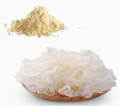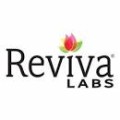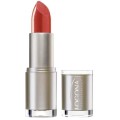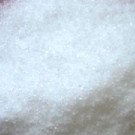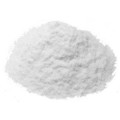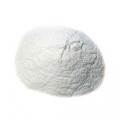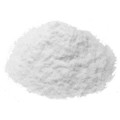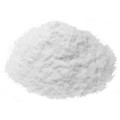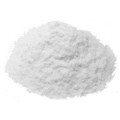 Loading... Please wait...
Loading... Please wait...- Home
- About Us
- Shipping, Returns & FAQ's
- Contact Us
-
For Your Information
- Canadian Customers Have a Choice if Shipping Via UPS
- Aura Cacia Homemade Aromatherapy Recipes
- Bella Nella Altered Art & Paper Crafts Blog
- Forms of Herbal Preparations
- Laundry Tips To Conserve Energy Blog from The Laundress
- The Story of Frontier Natural Products Co-Op
- Sovereign Silver Hydrosol and Aloe Protocol Stops Downward Spiral of Gut Dysbiosis
- Disclaimers
- Recommended Links
- RSS/Recent News
- The Story of Typhoon Housewares
- Reviews/Testimonials
- Raw Ingredients for Mfg
- Home
- Raw Materials
- Emulsifiers
- Citric Acid Crystalline Powder USP/FCC Grade Bulk
- Home
- Raw Materials
- Flavors
- Citric Acid Crystalline Powder USP/FCC Grade Bulk
- Home
- Raw Materials
- Preservatives
- Citric Acid Crystalline Powder USP/FCC Grade Bulk
- Home
- Household/Office
- Housewares
- Food Prep and Gadgets
- Canning
- Citric Acid Crystalline Powder USP/FCC Grade Bulk
- Home
- Raw Materials
- Acids
- Citric Acid Crystalline Powder USP/FCC Grade Bulk
Citric Acid Crystalline Powder USP/FCC Grade Bulk
Product Description
Citric acid is found naturally in several fruits and berries, and is commonly added to many foods and beverages as a preservative or for flavor. It has a tart taste, and is also known as lemon salt or sour salt. Many of our customers use our citric acid to clean dishwashers and dishes, or to make fizzy bath bombs (fun!).
Citric acid is completely natural, produced by cells during the Krebs cycle. The acid gets its name from the citrus fruit family, which includes lemons, limes, oranges, tangerines, and grapefruits. Citrus fruits, especially the more sour ones like lemons and limes, owe their sharp taste to citric acid.
Citric Acid in Food
Use citric acid as an ingredient in pretty much everything: cheeses, ice cream, alcoholic beverages, breads, and more. Because of its characteristic tart flavor, citric acid is often added to soft drinks and sour candies -- the white, powdery coating on sour candies is often citric acid).
1. Use in place of lemon juice: Although its flavor is slightly less complex than the flavor of a lemon, citric acid can be substituted literally anywhere lemon juice is used. An easy use of citric acid is to use it in place of lemon juice in homemade lemonade. Dissolve one teaspoon of citric acid and sugar and adjust to taste in a glass of water.
2. Keep fresh fruits from browning with citric acid: Use citric acid on cut fresh fruit and when making homemade canned goods instead of lemon juice. The acid has the same effect as lemons in preventing fresh fruit from browning and regulates the pH level in canned goods to prevent bacteria growth. You can even add citric acid to marinades, homemade jams, and more!
3. Use citric acid instead of salt: If you're watching your sodium intake, citric acid can be used as a substitute for salt in sour breads, such as sourdough and rye. Substitute an equal amount of citric acid for salt for the same flavor and none of the sodium.
4. Add sourness to sweets: When you're making homemade candy, finish it off with a coating of citric acid for the classic mouth puckering sourness. Or add it to soft drinks for a seriously lemony-lime soda.
5. Use citric acid as an aid in homemade foods: When you're making homemade ice cream or cheese, citric acid helps you reach successful results. It acts as an emulsifier in homemade ice cream by keeping away fat globules. Added to cheese, citric acid helps the milk curdle and solidify.
Non-Food Uses for Citric Acid
1. One really fun use of citric acid is bath bombs. When you put a bath bomb in water, it will erupt and fizz, making for an enjoyable bath. Many people combine citric acid and baking soda to make homemade bath bombs, adding oils and fragrances for a pleasant aroma.
2. Citric acid's mildly acidic properties make it a great cleaning agent. When added to dishwashing detergents, citric acid can soften water and remove hard water deposits from dishes, dishwashers, coffeemakers, kettles, and pipes (this is known as descaling).
3. Some people use citric acid in shampoos, skin care, and photography. It's used in shampoos to lower the pH levels so hair will turn out smoother and shinier. In skin care, it may improve the health of skin cells by stimulating collagen production and acting as an antioxidant. When developing film, the citric acid is used to quickly stop the development of photos.
4. Citric acid is used in gardening to help treat soil alkalinity. If the soil is too alkaline for a particular plant, citric acid is mixed in to help raise the soil's pH.
Health Benefits of Citric Acid
Studies have shown that citric acid can help your bones absorb calcium more easily. Its ability to easily bond with minerals aids the absorption and digestion of minerals. Citric acid can also help prevent small kidney stones from growing into larger, problematic stones. The citric acid coats the stones and prevents materials from sticking to them and making them larger.
Components of citric acid--called citrates--are used in the treatment of alcoholism. Citrates alter the way the human body metabolizes alcohol. The citric acid citrates cause sickness after a person ingests alcohol. This helps alcoholics stop drinking, because they want to avoid becoming ill.
During open-heart surgery, surgeons use a naturally occurring salt found in citric acid--called potassium citrate--to halt the heart's pumping action. This enables doctors to repair the heart or vessels without pumping blood obscuring their view.
INCI/CAS #: 77-92-9
aka: Lemon salt
Origin: China/USA
Notes: Kosher Certified. Non-irradiated. Non-GMO. Gluten-Free.
Specifications are subject to change without notice.
* FDA disclaimer
References
Find Similar Products by Category
You Recently Viewed...
Currency Converter
Choose a currency below to display product prices in the selected currency.


